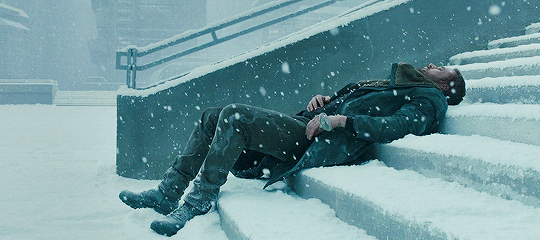Breaking into the TV business doesn’t happen in a day. Speaking from experience, it’s an ongoing, nerve-wracking process that requires constant attention.
As Dan Harmon (Community) says, breaking in is “always banana peels and stoplights, a series of random events. The only thing you can do is be persistent about it.”
Rob Thomas had created the short-lived series Cupid in 1998, but, “there were years where I just felt I am typing into a waste basket, where I had pilot scripts ordered and made but I wasn’t getting anything on the air.”
After shooting the Veronica Mars pilot in 2004, Thomas “was at a very low point…” It was “very much a flip of the coin” whether or not the show would be picked up for series. He’d proposed to his girlfriend and told her “if Veronica Mars is picked up I’ll write in television. Otherwise we’re moving back to Austin and I’m going to be a young adult novelist because this has sapped me of my will to live.” Of course Veronica Mars did go to series and changed the course of Thomas’s career.
Michael Green, the TV and screenwriter of Logan, Blade Runner 2049, Alien: Covenant, and many more, puts it exactly right when he says, “you will never feel like you made it. The only thing that’s good is like when your parents get to see your name on something. You’ll never feel like you’ve made it no matter what.”
Working in this business is a constant hustle. It can eat you alive. It can easily lead to an overwhelming feeling of desperation, like you’re falling behind everyone else.
One of my favorite interviews for The Writers Panel was with Boardwalk Empire creator Terence Winter. Winter hustled for years after leaving New York, where he had a career as a lawyer, to come to LA to write for TV. He captures that desperate striving better than anyone I’ve talked to over the years:
I’d wake up in the morning and the first thought when I’d look around was where the fuck am I? Oh my god, I’m in Los Angeles. What am I doing in Los Angeles? I’m supposed to make my writing career happen. Holy shit. Ohmygod. And it was this panic... Especially for me at thirty, I just felt this ticking clock. I kept thinking, ‘I should have been out here when I was 22. I should have gotten out here as soon as I graduated from college. I wasted all of this time’. So there was an urgency, a real sense of ‘I’ve got to make this happen’, and failure was not an option.
Winter moved in with strangers and took nine-to-five type jobs so he could concentrate on writing at night and on weekends.
I had this deal I made with myself that I would not go to sleep that night until I did something that day to further my writing career. And that would be: did you write a scene today? Did you talk to an agent today? Did you send out a letter? Did you mail a script? If the answer is no, I’d get my ass out of bed and do something so I can go to bed and say, ‘okay, you’re an inch closer to making this happen’. Because time will slip away. The enemy is that clock. It’s so easy to procrastinate. As you know, sometimes the hardest thing in the world, I’d come home from my job at the end of the day, I’d be exhausted, the hardest thing to do is to push that button on the fucking computer and go I’m going in, I’m writing. It’s solitary, and it’s lonely, and it’s you against a blank computer screen. It sucks. It’s hard. It’s really hard to do.
So, you have a few hours left in this day. What will you do to further your writing career? I’m going to write a scene—no more than a page—for this new short I’m hoping to shoot. If I can do that today, at least I’ll have done something.
Next week: Official launch! Special paid-subscriber-only Q&A guest announced! Part 1 of “what should I write?” And more!




